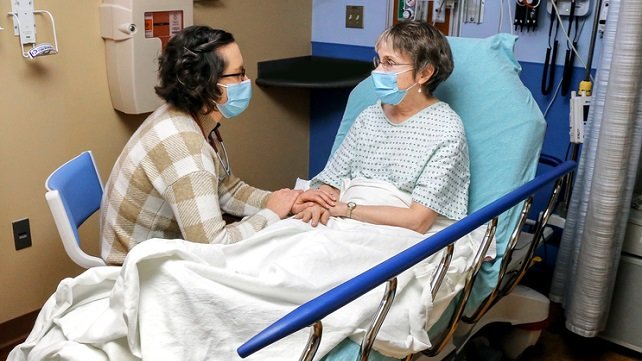Less Stress in the Emergency Department
An emergency department visit can be the most vulnerable time of a person’s life. Leah McDonald, MD, alleviates the stress at The Miriam, the only hospital in Rhode Island to provide palliative care to emergency department patients.

